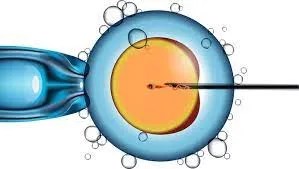
Female Health & Fertility
Male Infertility: A Cause for Concern for the Modern Man
infertility, male, sexual health, sperm motility rate
There was a time when only women used to worry about infertility. But that’s not the case anymore. For the last couple of decades, there has been an increase in cases of male infertility. It is a sad reality for many men that they will one day be faced with infertility as well.
Male infertility affects 1 in 20 couples. This means it’s something you should be aware of and discuss with your partner if you’re trying to have children. This blog post discusses male infertility causes, treatment options, and prevention strategies.

What is Male Infertility?
Male infertility is when a man’s body has issues with producing healthy sperm. This can happen for many different reasons. The most common reason in men under 40 years old is low or zero sperm count. This is due to the failure of the testicles to produce enough testosterone and release normal amounts of sperm.
Causes of Male Infertility
There are a number of causes of male infertility. However, there are just 2 main reasons for infertility. The ability to produce healthy sperm, and the ability to deliver the sperm to where it needs to go. Here are some of the causes.
Undescended Testicles
One common cause of male infertility is when a testicle fails to descend into the scrotum. Undescended testicles usually happen during infancy. But it can also happen later in life if there are hormone issues or injury to the area.
Varicocele
Varicocele is a condition where the veins in your scrotum swell up and cause pain. This can sometimes interfere with normal sperm production because of high heat levels that may damage the testicles.
Sperm Diseases
There are some diseases that also affect male fertility, including cystic fibrosis, sickle-cell anemia, and other genetic abnormalities.
Hormonal Imbalances
Hormone imbalances can also interfere with your ability to produce healthy sperm or ejaculate normally. This includes problems like thyroid disease, adrenal gland disorders, and pituitary issues such as Cushing’s syndrome.
Chemotherapy
Chemotherapy can also cause infertility in men by killing off sperm-producing cells. This is a side effect for many cancer patients going through treatment. Fortunately, it’s usually temporary and fertility will return once chemotherapy treatments have ended.
Medications
There are also some medications that can cause infertility. For instance drugs for high blood pressure (especially beta-blockers), heart disease, or depression. Other medications like steroids and opioids may reduce sperm production but won’t affect your ability to ejaculate normally.
Retrograde Ejaculation
This is a condition where the semen is ejaculated into the bladder instead of passing through the urethra and out of the penis. The semen may have been of good quality but if it can’t get where it needs to get, fertility can’t happen. Retrograde ejaculation is usually a result of complications from previous surgeries.




Aging & Lifestyle Factors
As men age their testosterone levels decrease which affects the quality of their sperm and their ability to produce healthy levels of it. Other factors that can contribute include obesity, smoking, drug use (including marijuana), alcohol consumption, and even stress or anxiety.
Environmental Causes
There are also some environmental factors that can affect male fertility such as exposure to heavy metals and pesticides.
Diagnosing Male Infertility
Doctors diagnose male infertility by reviewing your medical history and performing a physical exam. They may also order blood tests such as a semen analysis to test the number, shape, and movement of sperm. Other diagnostic tests are Genetic testing or imaging studies to see if any other problems exist that could be causing it like varicoceles or blockages in the reproductive organs.
Semen Analysis
A semen analysis gives information like how many sperm are in each milliliter of ejaculate, their shape, and whether they can move properly. Your doctor may perform this by either collecting the sample at home or taking it during an office visit.
Blood Test
Your doctor may choose to do a blood test that measures the level of male hormone or testosterone. Low levels can affect sperm production and ejaculate volume, making it difficult for you to conceive naturally. An overabundance of the female sex hormone estrogen may also lead to fertility problems in men, so doctors will look at your estrogen levels as well.
Testicular Biopsy
Another test your doctor may recommend is a testicular biopsy. This involves using an ultrasound to guide a small needle into the scrotum and then taking out fluid or tissue samples from each of your testicles for analysis.
Treatment of Male Infertility
Treatment for male infertility depends on what is causing it and how severe the case may be. Male infertility treatment could be surgical, by medication, or by different assisted reproductive techniques.
Assisted Reproductive techniques
Examples of assisted reproductive techniques include IUI or IVF. With these treatments, there are higher rates of success than with male infertility therapies alone. These are especially effective when the sperm is healthy but the delivery of the sperm to the ovaries is problematic.
Artificial Insemination
This is the most common and least involved treatment for male infertility. An extracted sperm is delivered into a woman’s uterus by inserting, injecting through her cervix via a tube.
In-vitro Fertilization (IVF)
It involves extracting eggs from a woman’s ovaries, fertilizing them with sperm in a lab, and then implanting the resulting embryos into her uterus or fallopian tubes where they can hopefully grow into healthy babies.
Intrauterine insemination (IUI)
This is a less invasive procedure than IVF. A doctor will insert sperm into the uterus through a tube or catheter at the time of ovulation to increase your chances of fertilization and achieving pregnancy.
Gamete intrafallopian transfer (GIFT)
This is an advanced Assisted Reproductive Technique that involves extracting eggs from a woman’s ovaries and mixing them with sperm in a lab. The mixture is then injected into her Fallopian tubes where the fertilized egg can hopefully grow to become a healthy embryo.
Intracytoplasmic Sperm Injection (ICSI)
This involves injecting one sperm directly into an egg. If this fertilizes, doctors will place the embryo back in the uterus to hopefully grow and develop normally.




Medication
Doctors may prescribe medication that contains hormones such as FSH or LH which stimulate sperm production. However, These types of medications do cause side effects. Side effects like mood swings, changes in your voice, and body hair growth. For this reason, they’re usually only used for a short time until other therapies have taken effect.
Counseling
In some cases where infertility is as a result of sexual issues or relationship problems, your doctor may also recommend counseling with a therapist. This can help you and your partner communicate better about sex as well as help to resolve any underlying stress (which may have led to erectile dysfunction) that could be contributing to infertility.
Natural Supplements
Some men might also benefit from taking certain supplements to give them a boost. Lecithin is an over-the-counter supplement that may help improve fertility by increasing the number of sperm and their motility, or ability to move toward an egg for fertilization. Here are just a few of the supplements that can help with male infertility.
Zinc Supplements
Zinc supplements may help improve infertility in men by increasing sperm count and motility. However, know that too much zinc is toxic to the body so talk with your doctor before starting any supplement regimen.
Click here to order zinc supplements online
Maca Supplements
Some research suggests that maca supplements may improve sperm count and motility. It’s important to consult your doctor before you start using it.
Click here to order maca supplements here
Lifestyle Changes
Changing and adjusting your lifestyle can reduce your risk of infertility and increase the chances of getting your partner pregnant.
Drug and Alcohol Use: Be careful about the drugs and alcohol you use. These habits may contribute to male infertility by causing problems with sperm quality or quantity.
High Temperatures: Avoid high temperatures found in hot tubs and baths. Sperm production may be affected by this type of heat for up to two weeks after your last exposure.
Exposures to Toxins: Avoid exposure to industrial or environmental toxins, which can affect sperm production. Be sure you keep your distance from chemicals if possible and wear protective clothing when handling toxic substances for long periods of time!
Medications: Limit the medications you take to avoid impacting your fertility. Talk with your doctor about any specific drug or medication that may you be on. But don’t stop or start taking prescription medicines without verifying they are safe for conception first.
Exercise: It’s not just for women anymore! Exercise can actually improve sperm quality and increase the chances of pregnancy. A recent study found that men who work out regularly have better-quality semen than sedentary males, this is according to research published (2017).
Surgery
If all else fails, your doctor may recommend surgery to correct male infertility. Surgeries are usually aimed toward diagnosis (finding out the problem), Improving sperm production, improving sperm delivery (for example removing blockages), and retrieving sperm to use in assisted reproductive techniques like IVF.
Varicocelectomy
Surgery to correct varicoceles. Varicocelectomy has been successful in improving sperm counts and motility, though it is not clear if this helps couples get pregnant or boosts the pregnancy rates of those who do conceive after surgery.
Epididymitis/Orchitis Surgery
This surgery involves removing a structure near the testicles called a hydrocele, which is a fluid-filled sac on the outside of a testicle. Orchitis surgery involves removing part or all of an inflamed epididymis to help reduce pain and inflammation caused by mumps infection.
Transurethral Ejaculatory Duct Resection.
Transurethral ejaculatory duct resection involves removing or destroying a part of the tube that transports semen from the testicles to the urethra. This helps increase sperm count, but it may also cause retrograde ejaculation which means your body’s muscle contractions force some seminal fluid back into the bladder instead of out through the penis during orgasm.
Microsurgical Testicular Sperm Extraction
Microscopic testicular sperm extraction (microTESE) is a procedure that takes sperm directly from the testicles, where they may have been stored. If you can’t release or make enough healthy ones naturally this medical option should be considered to enable fatherhood in cases of infertility.
Risk Factors for Male Infertility
Sexually Transmitted Diseases
A high number of sex partners can increase the risk for STDs which are common causes of male infertility. Your doctor may also recommend testing to check for sexually transmitted diseases before trying to conceive.
Obesity
Obesity increases your risk for many health problems, including infertility issues in men as well as women.
Smoking and Drinking
Smoking and heavy alcohol use both reduce sperm count or motility, so it’s best to stop smoking entirely and limit alcohol consumption if you’re having trouble conceiving with your partner.
Fevers
If you have a fever lasting more than one day it can cause temporary fertility problems due to low sperm production so keep things cool down there! Treating the underlying infection will help bring back normal hormone levels.
Age
While men can conceive children into their 90s, fertility does decrease with age. Sperm counts and motility may also decline over time so if you’re 35 or older it’s best to see your doctor for a semen analysis just in case.
FAQ
What are the signs of infertility in males?
Male infertility is diagnosed when a man has not achieved at least one pregnancy after 12 months of having unprotected sex with his partner.
How can you prevent male infertility?
Healthy lifestyle choices that contribute to overall wellness can help lower your risk for developing fertility problems in men as well as women. So avoid smoking and limit alcohol intake since these both reduce sperm count or motility. Maintaining a healthy weight also helps. Avoid hot tubs and sauna.
Which exercise increases sperm?
Any exercise that you enjoy and can do regularly will likely help increase sperm count but lifting weights, biking, yoga or swimming are all good options.
What is the treatment for male infertility?
Treatment depends on the diagnosis and underlying cause of either low numbers (oligospermia) or poor quality (asthenospermia). Treatments include medications to stimulate increased testosterone production which in turn boosts spermatogenesis. Surgery may also be used to remove anatomical problems such as varicoceles and ductal obstructions. While assisted reproductive techniques like IVF may also be recommended if other means fail.
Which food improves sperm?
Eating a balanced diet that includes plenty of vitamins and minerals will benefit both your general health as well as your reproductive system so consider adding nuts, seeds, fish oils along with fruits and vegetables to your daily routine.
Can pregnancy occur in cases of low sperm count?
Yes, it is possible. However, because the issue here is not having enough sperm present in an ejaculate, the probability of impregnating your partner becomes quite low.
Click Here to get Natural Supplements to Increase Testosterone which helps with muscle growth, sex drive, and fertility in men
Summary
Male infertility can be caused by many different factors, some of which are less serious than others. Causes may include low sperm count, poor quality or shape of the sperm cells, high levels of testosterone in the blood that affects the production and movement of sperm, and infection with a sexually transmitted disease like chlamydia or gonorrhea.
Another cause is the use of certain medications such as anabolic steroids to increase muscle mass or prostate cancer treatment drugs. Also, know that there are steps to prevent infertility. Such as avoiding substances that might have contributed to your condition (like alcohol) and using condoms if you are not monogamous.
Treatment options for male infertility depend on what has caused the fertility problem. Treatment may include surgery or medication. We also have an online store featuring all-natural supplements designed specifically with male fertility in mind! Visit us today if you need help getting started down the right path towards healthy sperm production and strong reproductive health.




Leave a Reply
You must be logged in to post a comment.